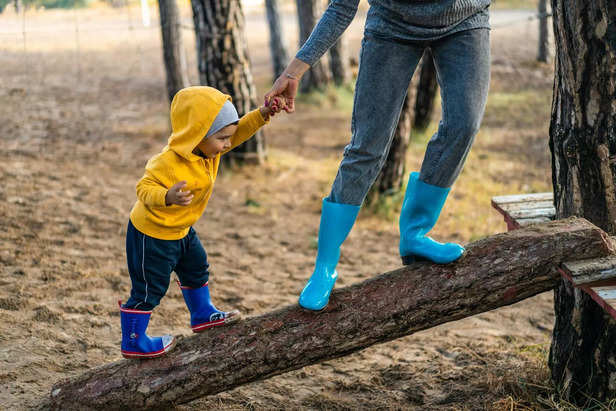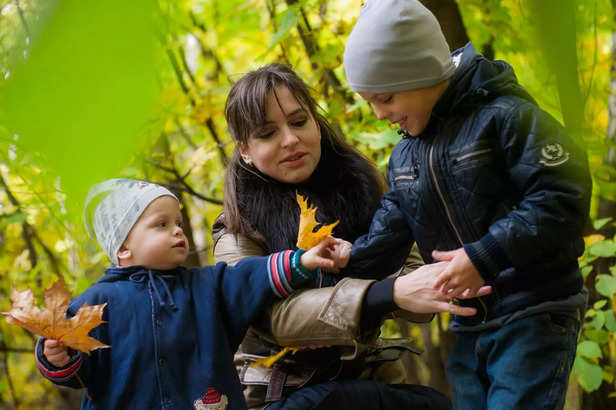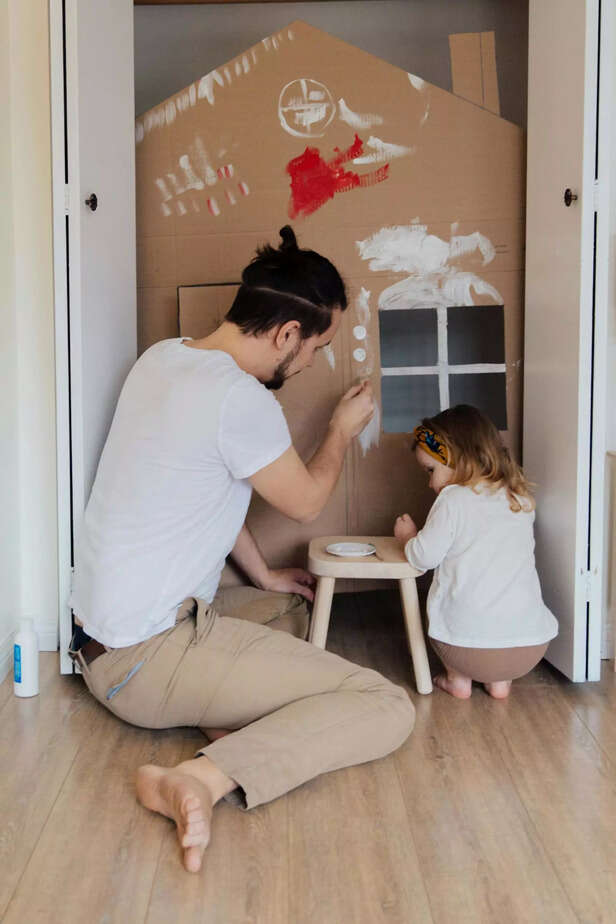Boost Your Child’s Self-Esteem: Powerful Ways to Raise a Confident Child
Ankita Rai | Wed, 26 Mar 2025
Boost your child’s self-esteem with proven strategies to enhance their confidence and self-worth. Explore practical ways to improve your child’s confidence, from engaging self-esteem activities for kids to the power of positive reinforcement. Learn how to raise a confident child by fostering resilience, encouraging independence, and nurturing a positive mindset. Help your child thrive with these essential tips for building self-esteem in children and setting them up for lifelong success.

( Image credit : Pixabay )
Photo:
Self-esteem in a child determines their mental health, social skills and success in life. Developing confidence in children supports navigating life experiences, adversities, and opportunities with resilience and optimism. Here we discuss some effective ways to raise a confident child and improve a childhood child’s confidence and self-worth.

Self-esteem is how a child views themselves and their abilities. Good self-esteem enables children to take risks, form close connections, and bounce back from failures. Though, low self-esteem can cause anxiety, self-doubt and lack of trying new things. Having a positive self-image at an early age instills confidence for the rest of a young girl's life.

Give sincere praise and encouragement
By positive reinforcement we mean praise. Only praise the process, not just the results. So instead of saying, “You’re so smart,” you might say, “I love how hard you worked on that project!” This encourages a growth mindset, as it teaches them perseverance and that hard work pays off.
Give kids choices that are appropriate for their age, from what they want to wear, to what they want to read, to how they want to spend free time. It encourages autonomy and builds confidence in choosing.
Confidence is built in children by succeeding. Give them the assignment of helping you out, and ensure its one they can succeed in, like organizing toys helping in the kitchen or watering plants. Every success, regardless of its size, reinforces their confidence in their abilities.
Life needs surprises, and failure is one of the greatest ones. Help children find ways to see mistakes as learning opportunities, as opposed to failures. Do not scold an employee; provide instructions on how to solve a problem, and remind them that making mistakes is a step towards improvement.
Children tend to form inner monologues from the feedback directed towards them from the outside world. Encourage them to counter negative self-talk with phrases like “I can do this” or “I am capable.” Modeling this behavior in your relationship can make a big difference.

Children need to know they are loved just for being who they are. Reassure them in words and actions that you love and appreciate them, and that their value is not linked to how well they perform.
Give the kids an opportunity to try new things and see what resonates with them. Whether it’s sports, music, art, or science, pursuing hobbies helps them develop competence and confidence.
Encourage Social Skills and Friendship
Positive social interactions contribute to the child’s self-esteem. It is important to foster playdates, team participation, and open dialogue to allow them to forge strong friendships and refine their communications skills.
Every child is unique. But comparing them to their siblings or peers can harm their confidence. Instead, see individual capabilities, personality types and growth.
Children are observant and learn from adults. Model self-assurance, optimism, and healthy ways to cope. Teach them how to face challenges with resilience and positivity.

These self-worth unblocker exercises in kids can be reassuring in maintaining a confident self image. Here are a few ideas:
Each day have kids write three things that they value in themselves.
Make a stack of positive phrases they can say out loud every morning.
Imagine the different situations, such as making new friends or speaking in front of a class.
They have been a reflection of their skills and achievements, let them be creative--draw, paint or art craft something that represents their abilities.
Assisting others gives rise to purpose and self-worth.
The importance of positive reinforcement in building a child’s self-esteem cannot be underestimated. Celebrate those efforts, verbally, with small celebrations or with quality time together. When children are seen and heard, their confidence develops.

It takes time, patience and consistency to build a child’s self-esteem. You can develop your child’s unshakeable confidence by creating a positive and nurturing environment, encouraging them in the passions and endeavors they enjoy, as well as teaching them the principles of resilience. A confident child today is a self-assured, successful adult tomorrow.
Unlock insightful tips and inspiration on personal growth, productivity, and well-being. Stay motivated and updated with the latest at My Life XP.
Frequently Asked Question (FAQs)
The Basics of Child Self-Esteem

a confident child
( Image credit : Pexels )
Self-esteem is how a child views themselves and their abilities. Good self-esteem enables children to take risks, form close connections, and bounce back from failures. Though, low self-esteem can cause anxiety, self-doubt and lack of trying new things. Having a positive self-image at an early age instills confidence for the rest of a young girl's life.
How to Boost a Child’s Confidence

raising a child
( Image credit : Pexels )
Give sincere praise and encouragement
Become Individual And Make Decisions
Help them experience success
Mistakes as Learning Opportunities — Teach Resilience
Promote Positive Self-Talk
Ways to Help Children Develop Positive Self-Esteem

parenting
( Image credit : Pexels )
Teach Them To Be Unconditionally Loving and Supportive
Support any Hobbies and Interests
Encourage Social Skills and Friendship
Avoid Comparisons
Be a Positive Role Model
Activities and Games for Helping Kids to Develop Self-Esteem

teaching good habits
( Image credit : Pexels )
These self-worth unblocker exercises in kids can be reassuring in maintaining a confident self image. Here are a few ideas:
Gratitude Journals:
Affirmation Cards:
Role-Playing Confidence Scenarios:
Art and Expression:
Examples of Kindness:
You Do You: How Positive Reinforcement Works for Kids
Final Thoughts

confident
( Image credit : Pexels )
It takes time, patience and consistency to build a child’s self-esteem. You can develop your child’s unshakeable confidence by creating a positive and nurturing environment, encouraging them in the passions and endeavors they enjoy, as well as teaching them the principles of resilience. A confident child today is a self-assured, successful adult tomorrow.
Unlock insightful tips and inspiration on personal growth, productivity, and well-being. Stay motivated and updated with the latest at My Life XP.
Frequently Asked Question (FAQs)
- How to help a child who has low self-esteem?
Encourage their strengths, provide positive reinforcement, and support them through challenges. - How would you boost a child's self-esteem?
Foster independence, celebrate efforts, and engage them in self-esteem activities. - How to help a daughter with self-esteem?
Teach self-love, encourage her passions, and model confidence in daily life. - How to raise strong daughters?
Empower them with resilience, independence, and the confidence to embrace their uniqueness.










